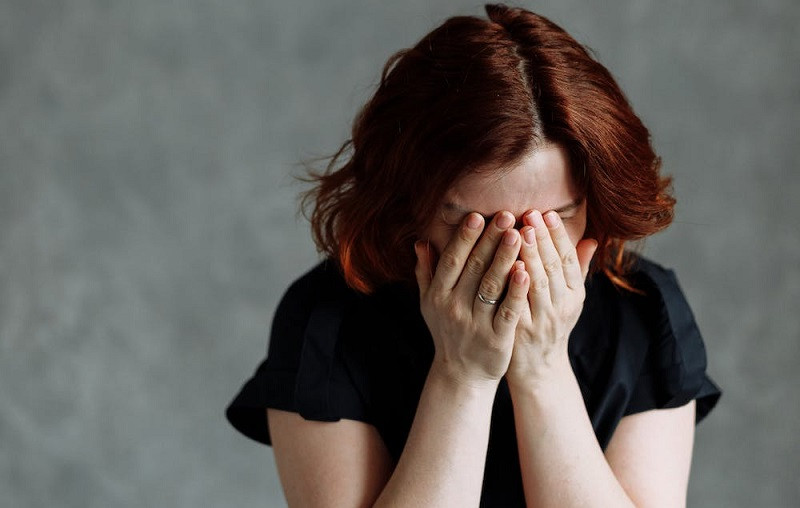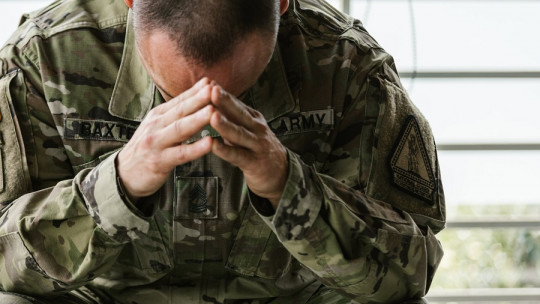
There are experiences that overwhelm us emotionally; and in the most extreme cases, when these experiences make us suffer a lot, they can give rise to traumatic psychopathology.
The most serious or disturbing situations that people can go through are those that can have a greater impact on their mental health and cause psychological trauma. Now, there are different variants of this alteration, with their own particularities. In this sense, here we will a review of the characteristics of the different types of trauma that exist and their effects ; This classification is taken into account in psychotherapy processes.
What are traumas?
Traumas are psychological alterations that can be more or less serious and are caused by a very disturbing or extremely stressful experience that causes the person an intense state of discomfort, anguish or directly psychological blockage.
These experiences can be of various kinds and all of them have in common the great psychological impact they have on the person, which can last. damaging your mental health for years.
Traumas are usually generated by events that happen by chance and some of the most common can be an accident that endangers the person’s life, the death or illness of a loved one, cases of sexual abuse and also mistreatment both physical as well as psychological.

The most common traumas studied by psychology are childhood traumas, since it is considered that the majority of them appear at an early age; However, there are many traumas that can appear at any other stage of a person’s development and at any age.
In short, we can establish that a trauma is that alteration caused by a serious situation that the person is unable to manage emotionally and that overcomes them in such a way that their memory system is altered, to the point that sometimes emotional crises arise with a disruptive effect in those who suffer them, by rekindling those memories.
Main types of trauma
Since no one person is the same as another, trauma can affect each individual differently. However, researchers in the field of mental health have described a series of traumas that are the most common among the general population.
Below we will briefly see the main types of trauma that exist and the basic characteristics of each of them.
1. Traumas in childhood
Psychological traumas in childhood are some of the most important, due to the influence they have on the psychological and intellectual development of the boy or girl who presents them.
These traumas are widely studied in psychology, since they explain most of the psychological problems or alterations that a person can develop when they become an adult and there are many traumatic experiences that can trigger them.
Some of the situations that can generate trauma in childhood are cases of sexual abuse and physical or emotional abuse, mistreatment in the family environment, living in a place where there are dynamics of drug abuse or addictions, and also cases of separation or divorce of parents.
2. Trauma due to sexual abuse
Cases of sexual abuse both in childhood and in adults of any age are usually one of the main causes of trauma in people and constitute one of the most damaging experiences for mental health.
Sexual abuse is a crime characterized by attacking the sexual freedom or identity of a person without their consent, as long as this act is carried out without violence or intimidation.
This type of traumatic situation is very difficult to overcome due to the great impact it has on the mental health of the person who has been a victim and also because this one wants to forget her at all costs.
3. Natural traumas
Natural traumas are triggered by catastrophes or natural disasters and also by chance accidents that occur without the active mediation of any person.
This type of trauma is usually generated by car accidents or any other means of transportation, earthquakes, floods, hurricanes or fires.
4. Trauma due to physical and psychological abuse
Situations of physical and psychological abuse towards a person can also end up generating trauma in the victim, which It may be of greater or lesser intensity depending on the type of abuse to which it has been subjected.
Psychological abuse is equally or more important than physical abuse, since it usually leaves consequences on the person’s psyche that can be very deep and negative for their mental health.
This type of abuse can be carried out through beatings, blows, torture, systematic harassment, confinement and many other modalities that threaten the physical or psychological integrity of the victim.
5. Interpersonal traumas
Interpersonal trauma originates from serious experiences that endanger the victim’s life and that are caused by the direct action of another human being or group of human beings.
These situations caused by other people can be robberies, kidnappings and all types of acts of terrorism where the life and physical integrity of the person are threatened.
What is the treatment of trauma variants?
In the context of psychotherapy, it is assumed that each case is unique and deserves a tailored intervention, based on the characteristics and needs of the patient, as well as the causes of their psychopathology. Now, the most used techniques and strategies are the following.
1. Cognitive restructuring
Through this process of psychotherapy, the person is helped to let go of the harmful beliefs about the world and about themselves that the patient has been holding, as resignify the trauma.
2. Systematic desensitization
As traumas rely heavily on emotional imbalances of an anxious type, systematic desensitization is used in psychotherapy, a typical resource for the treatment of anxiety disorders. It consists of helping the person to face their fears in a progressive way in this case your memories, giving you support and techniques to maintain control and not fall into avoidance dynamics.
3. Mindfulness
Mindfulness provides very valuable help when it comes to allowing for the person to focus on the present moment and let go of worries linked to the past and the supposed future that is approaching. Therefore, it is a support point from which to get rid of intrusive thoughts and anxiety.
Do you want to start a psychotherapy process?
If you are interested in seeing a psychologist to improve your mental health within the framework of psychotherapy, contact me.
My name is Javier Ares and I am a specialist in intervention in emotional and anxiety problems. I can assist you in person or by video call.








